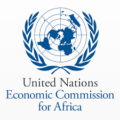Consultancy to assess Cameroon’s Capacity to Ease into New Borrowings and Mitigate the Risks of New Debt Unsustainability
Addis Ababa, Ethiopia
JOB DETAIL
Result of Service
The expected result of the consultancy are as follows; i. An assessment of debt management strategy, policy and frameworks with the aim of gaining an in-depth understanding of the drivers of debt dynamics and tools and measures to develop debt optimization strategies; ii. Strategic proposals and recommendations on the sustainable management of public debt, focusing on post-COVID recovery and the development of the financial sector; iii. Provide political and institutional responses aimed at strengthening Cameroon’s debt management capacity.
Work Location
Remote
Expected duration
3 months
Duties and Responsibilities
BACKGROUND The COVID-19 pandemic has narrowed fiscal space and put additional pressure on public debt for many African countries. According to S&P Global Ratings, sovereign government borrowing has reached a record high of $14.871 trillion in 2020 and will remain above pre-pandemic levels through at least 2022. Governments have borrowed heavily to finance measures to address the effects of the COVID-19 pandemic and now face significant cost increases to service that debt. Recent surge of commodity prices and threat of inflation has worsened the prospect of post-pandemic recovery. Borrowing costs for emerging market economies have already risen significantly as central banks in these countries have tightened their monetary policy, largely by raising interest rates. According to the IMF, 60 percent of low-income countries are near or at a point where they are unable to meet their financial obligations and may have to undergo debt restructuring. This represents a significant increase from about 30 percent in 2015. Despite efforts such as G20 Debt Service Suspension Initiative (DSSI) and Common Framework for Debt Treatments, under which 38 out of 54 countries in Africa are eligible, the long-term structural and institutional challenges on public debt are not addressed. Cameroon’s overall debt sustainability indicators have improved, due to a faster recovery from the pandemic, an improvement in the fiscal balance, and an increase in exports due to higher non-oil commodity prices. Nevertheless, according to the latest World Bank debt sustainability analysis, Cameroon remains at high risk of external debt distress and overall public debt. Debt dynamics will be further reinforced by the ongoing fiscal consolidation envisaged under the IMF-supported program, as well as reforms to boost exports and production. Fitch Ratings has affirmed Cameroon’s sovereign rating at ‘B’ with a stable outlook, although emerging fiscal and external financing pressures or heightened political instability and security challenges could lead to negative action or a downgrade. To balance debt levels and burdens with financing needs requires a thorough and careful assessment of the cause, condition, and dynamics of a country’s public debt issues. Against this backdrop, the United Nations Economic Commission for Africa (ECA), with the support of the Agence Francaise pour le Developpement (AFD) seeks to carry out a study on the Assessment of African Countries’ Capacity to Ease into New Borrowings and Mitigate the Risks of New Debt Unsustainability in Cameroon. DUTIES AND RESPONSIBILITIES The main objective of the mission is to carry out a study on the debt policy, strategies and prospects of Cameroon (“target country”) to understand the dynamics, responses, opportunities and constraints for financing economic and social development. Under the supervision of the Chief, Innovative Finance and Capital Markets Section, Private Sector Development and Finance Division, ECA, the Consultant will be responsible for the following tasks: i) Measure as much as possible the impact of successive crises (Anglophone crisis, war between Ukraine and Russia, health crisis, regional insecurity) on debt management policies and strategies and the new risks that have been generated; ii) Determine how Cameroon reconciles the nature of the loans contracted with the most appropriate investment projects (rate of return; technical capabilities of the technical and financial partner; other means); iii) Measure management frameworks, debt status and prospects, and the impact of rating actions on prospects for mobilizing future borrowing iv) Propose concrete responses aimed at strengthening Cameroon’s debt management capacity. .The working language of this consultancy is French
Qualifications/special skills
Advanced university degree (Master’s degree or equivalent) in political science, economics, development economics/studies, public finance or related field is required. A first level university degree in a combination of additional two years of qualifying experience may be accepted in lieu of the master’s degree. A minimum of 10 years of progressively responsible experience in public financial management. A strong background working in the areas of debt management, cash management and government securities. A Good knowledge of relevant public financial management tools and methodologies, including PEFA, DeMPA and IMF/WB Debt Sustainability Analysis.
Languages
English and French are the working languages of the United Nations Secretariat. Fluency in spoken and written French is required for this consultancy. Knowledge of another UN official language is an advantage.
Additional Information
Not available.
No Fee
THE UNITED NATIONS DOES NOT CHARGE A FEE AT ANY STAGE OF THE RECRUITMENT PROCESS (APPLICATION, INTERVIEW MEETING, PROCESSING, OR TRAINING). THE UNITED NATIONS DOES NOT CONCERN ITSELF WITH INFORMATION ON APPLICANTS’ BANK ACCOUNTS.



